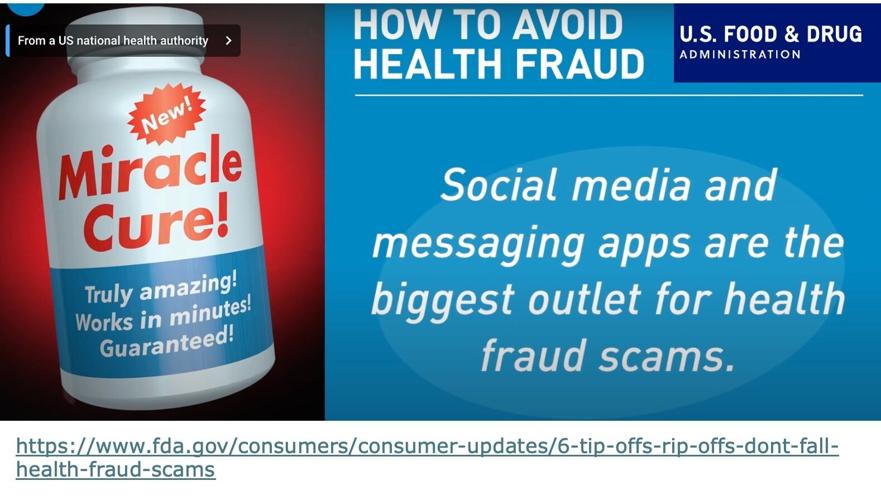Happy May, Dear Readers! I have published a monthly nutrition article in SaddleBag Notes for over a decade. From the list below, what do you think my motivation is?
The money
The notoriety
Public service
A creative outlet
If you chose the third reason, pat yourself on the back. I don’t get paid, and I rarely am recognized as an author. What motivates me is knowing I have provided a public service. When I became a Registered Dietitian in 1978, the flow of nutrition misinformation was a drip irrigation emitter compared to today’s firehose. I’ve watched the progression from books, talk shows and newspapers to the Internet, social media, Netflix documentaries and Podcasts (the new KING of misinformation).
For those unfamiliar with the attributes of a Registered Dietitian Nutritionist (RDN), I would like you to know that RDNs are food and nutrition experts with a minimum graduate degree from an accredited dietetics program. They complete a supervised practice requirement, pass a national exam and continue professional development throughout their careers. Many states have regulatory laws for dietitians and nutrition practitioners besides RDN credentialing; unfortunately, that is not the case in Arizona.
Though nutrition science is complicated, eating healthy is relatively simple, but simplicity doesn’t make money and rarely makes people famous. Keep these things in mind as you get nutrition information.
All quacks sell something. Selling something doesn’t make the person a quack but can influence the advice provided.
All Registered Dietitians are nutritionists, but not all nutritionists are dietitians.
RDNs are bound by professional ethics to provide evidence-based nutrition, while some people who call themselves nutritionists make stuff up.
Listed below are just a few recommended resources. Tips for spotting health fraud can be found on the FDA website at fda.gov/consumers/consumer-updates/6-tip-offs-rip-offs-dont-fall-health-fraud-scams.
NewslettersEnvironmental Nutrition provides comprehensive information at the intersection of nutrition and environmental sustainability. https://universityhealthnews.com/subscription-offers/environmental-nutrition/
Tufts Health & Nutrition Letter, a Friedman School of Nutrition Science & Policy publication at Tufts University, provides honest, reliable, scientifically authoritative health and nutrition information based on trusted science. For more information, visit nutrition.tufts.edu/news/nutrition-newsletter.
Linus Pauling Institute free newsletter. Check out lpi.oregonstate.edu/publications/research-newsletter.
Online The Academy of Nutrition and Dietetics offers information on nutrition and health, from meal planning and prep to choices that can help prevent or manage health conditions. For more information, visit eatright.org.
The American Institute for Cancer Research is a nonprofit that provides many free resources. The Healthy10 Challenge is a popular program and a great way to kickstart your journey to a healthier lifestyle. Each week, you’ll conquer a different challenge focused on making better food decisions and being more active. For more information, visit aicr.org.
Andrew Weil, M.D., is a world-renowned leader and pioneer in integrative medicine, a healing-oriented approach to health care encompassing body, mind and spirit. His Anti-Inflammatory Pyramid provides an excellent starting point for a plant-centered diet. Visit drweil.com.
Linus Pauling Institute promotes optimal health through cutting-edge research and trusted public outreach. Hundreds of free resources are on their website; you will find links to informative YouTube videos. Visit lpi.oregonstate.edu.
Very Well Fit consists of an expert team empowering you with the facts behind the fads. They provide verified, evidence-based answers to your most pressing fitness and nutrition questions. Check out verywellfit.com.
Phone AppNutrition GPA provides a free and quick way to assess your diet quality.
PodcastsNutrition Diva: Monica Reinagel, MS, RD, offers simple and painless ways to improve your eating habits. The average podcast length is about 10 minutes.
One Real Good Thing: In each episode, Elie Krieger (chef and registered dietitian) explores one key thing you can do today to propel your life in a healthier direction. In conversation with food, nutrition, lifestyle experts, celebrity guests and friends, she maps the path to a joyful, healthy life full of flavor, one “real good” thing at a time.
Food Sleuth: Melinda Hemmelgarn MS, RD, explores how farm and food policies impact our environment and public health. Provocative, practical and personal, Food Sleuth Radio helps us think beyond our plates to find “food truth.” Award-winning Food Sleuth Radio ranks among the top national “green food radio shows.”




